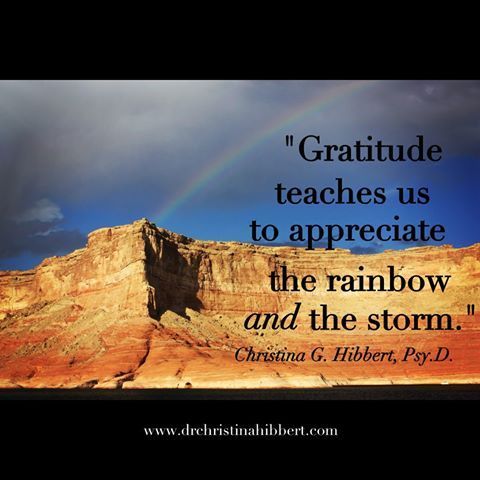Marty Nemko's Blog, page 435
June 21, 2013
I Make Another Attempt to Play the Piano with Seven Fingers
Not long ago, I developed a hand condition that renders three of my fingers useless, especially when trying to play the piano. Here's my attempt to play anyway.
Published on June 21, 2013 22:51
June 20, 2013
A "Workaholic" in Action
 It's been a busy few days. On top of my usual full docket of career counseling clients, writing my weekly AOL article, writing my weekly USNews.com article, giving a talk to 100 people at Experience Unlimited, and responding to tons of email, I was on a number of radio shows, mainly questioning whether work-life balance is a goal we all should strive for.
It's been a busy few days. On top of my usual full docket of career counseling clients, writing my weekly AOL article, writing my weekly USNews.com article, giving a talk to 100 people at Experience Unlimited, and responding to tons of email, I was on a number of radio shows, mainly questioning whether work-life balance is a goal we all should strive for.Indeed work-life-balance activists would label me "out of balance"
and a "workaholic," evoking comparison to "alcoholic," addicted to
something bad.
In fact, it's all been inordinately energizing. And amid it all, I found time to garden, play the piano,
hike every day with my doggie Einstein, help my 88-year-old mom, and
hang out with my wife. I will admit I didn't spend any time watching TV,
playing golf, etc.
In case you'd like to listen, here are the radio shows I've been on since Sunday:
Of course, I was on my own show (NPR-San Francisco) which I devoted to raising questions about three so-called career "truths."
KGO's (ABC-San Francisco) Ronn Owens Program is among the most listened-to on the West Coast. Talkers magazine named Ronn Owens one of the 25 Greatest Talk Show Hosts of All Time. Monday, I appeared on his show for about my 100th time. The interview was an hour long and covered such topics as: When it is and isn't wise to follow your passion, the pros and cons of for-profit vs. non profit careers, and colleges that still are accepting applications for the fall. HERE is the link.
Also, on Monday, I was on WHYY (NPR-Philadelphia) for an hour questioning whether "work-life balance" is a goal all people should strive for. I argued that, for example, shorter hours may not address the real reason people are stressed at work. HERE is an excerpt.
Today, I was on the CBC (Canada's NPR) for an hour, also talking about the whether we are too universally extolling work-life balance and unfairly labeling hard workers with the term "workaholic." The host pretty much took the other side. I leave it to you to decide if I held my own. HERE is the link to that hour.
And as I mentioned in the previous post, today I offered job-search advice to teens on NPR's Marketplace HERE is the link.
I hope you find these audio recordings useful and maybe even vaguely entertaining.
Published on June 20, 2013 19:31
Basic, Very Basic, Job-Search Tips for Teens

I was on NPR's Marketplace today. It reminded me of how little teenagers know. Here's the link.
I also found it interesting that they interviewed me for a half hour during which I shared all sorts of job-search strategies but they chose to air only about 20 seconds, including a line about butt cracks.
Published on June 20, 2013 18:37
How a Very Shy Person Became a Star
Here's a 4-minute set set of snippets from Jeffrie Givens' and my latest performance of Big, Black, and Shy, the one-woman show I directed, piano-accompanied, and co-wrote.
The first two minutes mainly consists of snippets from her fascinating life story and the last minute is a singing performance that demonstrates how far she's come from being one of the shyest people ever to come out of Oakland.
The first two minutes mainly consists of snippets from her fascinating life story and the last minute is a singing performance that demonstrates how far she's come from being one of the shyest people ever to come out of Oakland.
Published on June 20, 2013 14:57
June 19, 2013
Gratitude as an Antidote to Sadness

It's been a tough couple of days.
So I'm thinking it's time to remind myself of what I should be grateful for. I started to write that on a piece of paper but decided that perhaps sharing it with you might be of value to you, for example, encouraging you to write what you're grateful for. So here goes:
I am grateful for my wife, Dr. Barbara Nemko. She is a wise and kind woman. We've been together 40 years and plan to stay together forever. For that, I am deeply grateful.

I am grateful for my good health. I will be 63 years old on June 30, have no significant health problems, and still have all the energy I had when I was younger. I am deeply grateful.
I am grateful to have a career that I continue to love even though I've been doing it for 26 years. I still love working with my career and personal coaching clients. And because more people want to work with me than I have room in my schedule for, I have the privilege of being able to pick the clients whom I most believe in and for whom I can likely add the most value. It is a privilege indeed to help so many wonderful people live a life--at work and outside--that they feel good about. I am deeply grateful.
I am grateful that, in addition to my main career, I also have exciting sideline careers. In October, I begin my 25th year as host of Work with Marty Nemko on a National Public Radio station in San Francisco. I write weekly for USNews.com and for AOL.com and monthly for the Mensa publication, The Intelligencer. I am involved in major, albeit long-shot, education reform efforts. I'm involved in the theatre world, including recently having directed, co-written, and piano-accompanied a one-woman show that audiences have loved. I am deeply grateful to have such opportunities and that there's an extensive Wikipedia entry on me.
I am grateful for my doggie, Einstein. I live in the world of nuance and of trying to understand what lies beneath people's surface. It is a relief to know that, with Einstein, what I see, is what I get: pure unadulterated love. I am deeply grateful for that.
Finally, I am grateful to you, the readers of this blog. I have an irrepressible desire to share my thoughts with you (over 1,000 posts plus 1,000 of my published articles and columns on my website) and so appreciate that you read them. I also appreciate your comments, even when they disagree with me. The vast majority of those are respectful and constructive. I consider thoughtful disagreement to be one of the Internet's many pluses. I am grateful.
It felt good to write this. By any chance, does my having written what I feel grateful for, make you want to write what you're grateful for? Of course, I understand if you want to write that privately, but I invite you to write that as a comment on this blog post.
Published on June 19, 2013 16:37
More on "The Case Against Resume Writers"

I wrote a USNews.com article,The Case Against Resume Writers, and perhaps not surprisingly, a number of paid resume writers objected, including on a LinkedIn group for paid resume writers.One such comment by a paid resume writer named Grant Cooper was particularly virulent and unfair, and I responded. Alas, the moderator chose not to
post it even though she allowed other comments to be subsequently posted.
As you decide whether hiring a resume writer is ethical, I believe it is may be helpful to read my response to Mr. Cooper:
Let’s start with Cooper's accusation that the publication that called me
“The Bay Area’s Best Career Coach” is known for reports on sexuality. In
fact, The San Francisco Bay Guardian is a respected publication known
mainly for its long-form investigative journalism and thoughtful
features on a wide range of issues. It’s more like a regional Harper’s
than the tawdry publication Mr. Cooper implies. Here is the link to its
Wikipedia entry. But that’s beside the point. His response to my article should be based on responding to my article’s points.
He then criticizes my assertion that paying a resume writer is no
more ethical than paying someone to write your college application
essay. He writes, “For someone with a U.C. Berkeley doctorate, such a
sloppy and inaccurate comparison is quite surprising. College
application essays clearly state that the essay is to be the work
product of the candidate, while resume application processes contain no
such admonitions.”
Ironically, it is his reasoning that is sloppy. Employers do not need
to explicitly state that they expect people’s applications to be their
own work. That’s obvious. The far more potent and valid basis for
analogizing paid college application writers to paid resume writers is
that in both, applicants are being screened for highly desired,
high-stakes slots, and both paid college app writers and paid resume
writers make valid selection more difficult and both are unfair to the
applicants who do their own work. Both replace the candidate’s ability
to demonstrate organizational, thinking, writing, and
detail-orientedness with the resume writer's.
He then argues that evidence for my arguments’ invalidity exists
because Mssrs. Bolles and Yate may be more well-known than I am. That’s
not arguing on the merits. Besides, in fact, the chapter on resumes in
the 2013 edition of Bolles’ What Color is Your Parachute mentions resume
writers only in one phrase and does not endorse their use. He merely
neutrally mentions their existence.
Cooper then argues that trying to get a competitive advantage is “as
American as apple pie.” Yes, but that doesn’t justify trying to get an
unfair competitive advantage. Hiring a resume writer is like wearing a
jet pack for the first part of the job-search race.
He then argues that resume writers are no more unethical than are PR
firms or ad agencies.” It’s ironic that he asserts, apriori, his analogy to be valid yet calls me sloppy for asserting an analogy between
paid resume writers and paid college application writers. Besides,
saying that the resume-writing profession is no worse than PR firms or
ad agencies is not exactly a ringing endorsement.
Then Cooper argues that just because "I (He's referring here to himself, not to me) craft an outstanding resume for my
client, because I assist them in highlighting their measurable
accomplishments, and I attractively format and powerfully wordsmith
their resume, no federal, state, or local law requires any employer
whatsoever to hire, much less interview that candidate.”
Of course, that
doesn't force an employer to interview or hire the candidate, but as I
said in the article, for white-collar and professional employment (the
majority of people hired by paid resume writers,) employers use resumes not
just to review a candidate’s job history, but his or her ability to
organize thoughts, write, and produce an error-free document. If the
resume writer is doing the work instead of the candidate, the employer
doing pre-interview screening has a harder time distinguishing between a
candidate who hired a resume writer from one who believed it ethical to
do his/her own work and/or who couldn’t financially afford a resume
writer. And a candidate who, in fact, would have been a better employee
than the one who hired a resume writer, won’t get a chance to prove that
because s/he would have been eliminated in the pre-interview screening.
Justice denied.The greater good precluded.
Cooper then asks me to answer 11 questions, again including a snarky and
untrue statement about the publication that called me “The Bay Area’s
Best Career Coach.” Those questions basically reduce to one: “Why do
some employers welcome resume writers?” Those that do, are misguided.
Whatever clarifying benefit accrues from paid resume writers is outweighed by their obfuscating effects. Indeed, the percentage of hires
that don’t work out is enormous. The annual employee turnover rate in the U.S., across all industries, is 75%! While, of course, other factors are contributory to that, resume writers are far from helping.
I’d imagine that all of us entered a career-advising profession to
make things better. With all the clearly societally
beneficial professions out there, is it not unreasonable for me to ask
if resume writers might want to revisit their choice of profession?
I am not expecting people in a profession that I’m critical of to embrace my arguments. Rather, despite my having written it to do good, I anticipated that paid resume writers would not agree, although not the low-level of their arguments, let alone dishonest, ad hominem accusations. Perhaps there may even be more of that. I certainly don't look forward to that. Indeed, like all human beings, I much prefer
to be liked than derided.
But I’m hoping that, possibly, this kind of
pointed exchange does serve a larger good. The career-advising
profession hasn’t changed all that much over the decades and perhaps
exchanges such as this could pave the way for further growth in the
profession.
On the other hand, perhaps I’m deluding myself and using that as a
rationalization for having taken all the time to write this. I'm hoping for the best.
Published on June 19, 2013 09:15
June 18, 2013
Reverse Discrimination: A Bigger Threat to America than Terrorism
At the risk of arousing ire from politically correct readers, it's ever clearer that the Obama Administration is increasing reverse discrimination at an accelerating rate. It is aggressively promulgating even such absurd policies as trying to prohibit employers from doing criminal background checks if it results in fewer non-Asian minorities getting hired. This is called "Disparate Impact."
True, if the government sued an employer for disparate impact, the employer could prevail but the cost of defending a "business necessity" lawsuit is so onerous that most employers just sigh and forgo using criminal background checks to screen prospective employers.
Imagine you had lived honestly and not committed felonies? Now, you're told that the Obama Administration is pressuring employers to give felons as good a chance as you to get a job." Is that fair to you? To the employer? To society? When employers are ever more precluded from using merit-based criteria to screen applicants, is it any wonder why America is finding it ever more difficult to compete with countries such as China and India?
Now imagine that you owned a rental apartment. Under "Disparate Impact," you are forced to give equal treatment to felons and non-felon applicants. Fair?
I believe that nothing is more devastating to the nation than to assault merit-based selection.
Why would the Obama Administration do that? Of course, it believes it is trying to improve, not destroy the nation. The problem, I believe, is that Obama has filled his administration with fellow True Believers in the primacy of redistributing resources--from jobs to housing to university slots--to the have-nots. The Administration deems that so important that it is willing to push merit toward the back seat. In my view, that is short-sighted and very dangerous policy.
Thus, the Administration promulgates disparate impact lawsuits, allowing colleges to heavily consider race, urging amnesty for illegals, employers to have "targets" for race and ethnicity in all job categories, etc.
Here is an update on the Obama Administration's anti-merit efforts from Roger Clegg, President of the Center for Equal Opportunity.
Waiting for Fisher
by Roger Clegg
The Center for Equal Opportunity had urged the Court to grant review in
this Mt. Holly v. Mt. Holly Gardens Citizens in Action, as discussed here,
and we’re glad that the Court did so this week.
It presents the issue — never resolved by the Court — whether a “disparate
impact” cause of action may be filed under the Fair Housing Act. Such a cause
of action alleges “discrimination” based on statistical imbalances, and
notwithstanding the fact that the challenged practice is nondiscriminatory by
its terms, in its intent, and in its application.
So, for example, the refusal
to rent to convicted felons, or to sell homes to people with poor work
histories, or to rent or sell to people with bad credit ratings — all can be
challenged if there is a disproportionate effect on this or that racial group,
and then the defendant must prove some degree of “necessity” for the
practice.
The Obama administration loves this approach, but here’s hoping the Court
nixes it.
* * *
The Equal Employment Opportunity Commission under the Obama administration
has likewise made it clear that it objects to criminal-background checks.
That’s for employers, mind you, not gun owners. And it’s based on the same
“disparate impact” approach, that statistically speaking some racial groups will
be affected more than others if companies use these checks.
But the Commission’s objection
to companies using criminal-background checks drew some
attention last week, including a front-page, above-the-fold story by the
Washington Post. The EEOC and its defenders would like the debate to
hinge on whether the particular checks by a particular company are all that the
good and wise would want them to be. ”It is a fairness issue,” said David Lopez,
the Commission’s general counsel.
But there are a couple of more fundamental questions. First, who should get
to make these decisions, absent a showing of actual discriminatory intent
(again, not alleged here): The person who owns the company or a bunch of federal
bureaucrats? And second, remember that the EEOC is not objecting to
criminal-background checks per se, no matter how high-handed and unfair they
are, so long as they do not have a politically incorrect racial effect. Now,
what bearing does that have on a practice’s “fairness”?
* * *
Linda Greenhouse, a Supreme Court columnist for the New York
Times, is trying yet again to
persuade the Supreme Court not to decide the Fisher v.
University of Texas case, in which the Center for Equal Opportunity is
urging the Court to end racial preferences in university admissions. Here’s my
posted response to Ms. Greenhouse:
It makes perfect sense for the Court to review this issue [of racial
admissions preferences] again. For one thing, universities have shown that they
cannot be trusted to weigh race only lightly; numerous studies have shown that,
despite judicial warning, race continues to be given overwhelming weight. For
another thing, the demographics of the country are changing so that, more and
more, it is Asian students who are being discriminated against and Latino
students who are being given preferential treatment. And there is more and more
empirical data to suggest that the purported benefits of using racial
preferences have been overstated, and that the costs are much higher (for
example, “mismatching” students and schools has been shown to hurt the supposed
beneficiaries of preferential treatment). And the issue of the case’s
justiciability was exhaustively briefed at the cert stage in the case, with
petitioner trouncing the University’s arguments.
As we await the Court’s opinion in Fisher, two recent polls have
underscored that the public doesn’t like this kind of discrimination, and indeed
likes it less and less with every tick of the clock. You can read about the
polls here.
And, if you want still more information on Fisher, you can watch
this
BBC clip (yours truly appears briefly at the 00:40 mark).
Keep your fingers crossed!
True, if the government sued an employer for disparate impact, the employer could prevail but the cost of defending a "business necessity" lawsuit is so onerous that most employers just sigh and forgo using criminal background checks to screen prospective employers.
Imagine you had lived honestly and not committed felonies? Now, you're told that the Obama Administration is pressuring employers to give felons as good a chance as you to get a job." Is that fair to you? To the employer? To society? When employers are ever more precluded from using merit-based criteria to screen applicants, is it any wonder why America is finding it ever more difficult to compete with countries such as China and India?
Now imagine that you owned a rental apartment. Under "Disparate Impact," you are forced to give equal treatment to felons and non-felon applicants. Fair?
I believe that nothing is more devastating to the nation than to assault merit-based selection.
Why would the Obama Administration do that? Of course, it believes it is trying to improve, not destroy the nation. The problem, I believe, is that Obama has filled his administration with fellow True Believers in the primacy of redistributing resources--from jobs to housing to university slots--to the have-nots. The Administration deems that so important that it is willing to push merit toward the back seat. In my view, that is short-sighted and very dangerous policy.
Thus, the Administration promulgates disparate impact lawsuits, allowing colleges to heavily consider race, urging amnesty for illegals, employers to have "targets" for race and ethnicity in all job categories, etc.
Here is an update on the Obama Administration's anti-merit efforts from Roger Clegg, President of the Center for Equal Opportunity.
Waiting for Fisher
by Roger Clegg
The Center for Equal Opportunity had urged the Court to grant review in
this Mt. Holly v. Mt. Holly Gardens Citizens in Action, as discussed here,
and we’re glad that the Court did so this week.
It presents the issue — never resolved by the Court — whether a “disparate
impact” cause of action may be filed under the Fair Housing Act. Such a cause
of action alleges “discrimination” based on statistical imbalances, and
notwithstanding the fact that the challenged practice is nondiscriminatory by
its terms, in its intent, and in its application.
So, for example, the refusal
to rent to convicted felons, or to sell homes to people with poor work
histories, or to rent or sell to people with bad credit ratings — all can be
challenged if there is a disproportionate effect on this or that racial group,
and then the defendant must prove some degree of “necessity” for the
practice.
The Obama administration loves this approach, but here’s hoping the Court
nixes it.
* * *
The Equal Employment Opportunity Commission under the Obama administration
has likewise made it clear that it objects to criminal-background checks.
That’s for employers, mind you, not gun owners. And it’s based on the same
“disparate impact” approach, that statistically speaking some racial groups will
be affected more than others if companies use these checks.
But the Commission’s objection
to companies using criminal-background checks drew some
attention last week, including a front-page, above-the-fold story by the
Washington Post. The EEOC and its defenders would like the debate to
hinge on whether the particular checks by a particular company are all that the
good and wise would want them to be. ”It is a fairness issue,” said David Lopez,
the Commission’s general counsel.
But there are a couple of more fundamental questions. First, who should get
to make these decisions, absent a showing of actual discriminatory intent
(again, not alleged here): The person who owns the company or a bunch of federal
bureaucrats? And second, remember that the EEOC is not objecting to
criminal-background checks per se, no matter how high-handed and unfair they
are, so long as they do not have a politically incorrect racial effect. Now,
what bearing does that have on a practice’s “fairness”?
* * *
Linda Greenhouse, a Supreme Court columnist for the New York
Times, is trying yet again to
persuade the Supreme Court not to decide the Fisher v.
University of Texas case, in which the Center for Equal Opportunity is
urging the Court to end racial preferences in university admissions. Here’s my
posted response to Ms. Greenhouse:
It makes perfect sense for the Court to review this issue [of racial
admissions preferences] again. For one thing, universities have shown that they
cannot be trusted to weigh race only lightly; numerous studies have shown that,
despite judicial warning, race continues to be given overwhelming weight. For
another thing, the demographics of the country are changing so that, more and
more, it is Asian students who are being discriminated against and Latino
students who are being given preferential treatment. And there is more and more
empirical data to suggest that the purported benefits of using racial
preferences have been overstated, and that the costs are much higher (for
example, “mismatching” students and schools has been shown to hurt the supposed
beneficiaries of preferential treatment). And the issue of the case’s
justiciability was exhaustively briefed at the cert stage in the case, with
petitioner trouncing the University’s arguments.
As we await the Court’s opinion in Fisher, two recent polls have
underscored that the public doesn’t like this kind of discrimination, and indeed
likes it less and less with every tick of the clock. You can read about the
polls here.
And, if you want still more information on Fisher, you can watch
this
BBC clip (yours truly appears briefly at the 00:40 mark).
Keep your fingers crossed!
Published on June 18, 2013 09:32
June 17, 2013
The Case Against Resume Writers
Published on June 17, 2013 08:48
June 13, 2013
The Art of Getting Promoted
Published on June 13, 2013 19:36
June 10, 2013
For Longshot Job Hunters: Social Media Tactics That May Save the Day

My USNews.com article today: The fifth in my job-search HailMarys series: Social Media Hail Marys.
Those are nothing-to-lose tactics that, when you're a longshot job hunter, could save the day.
Published on June 10, 2013 09:36
Marty Nemko's Blog
- Marty Nemko's profile
- 4 followers
Marty Nemko isn't a Goodreads Author
(yet),
but they
do have a blog,
so here are some recent posts imported from
their feed.





